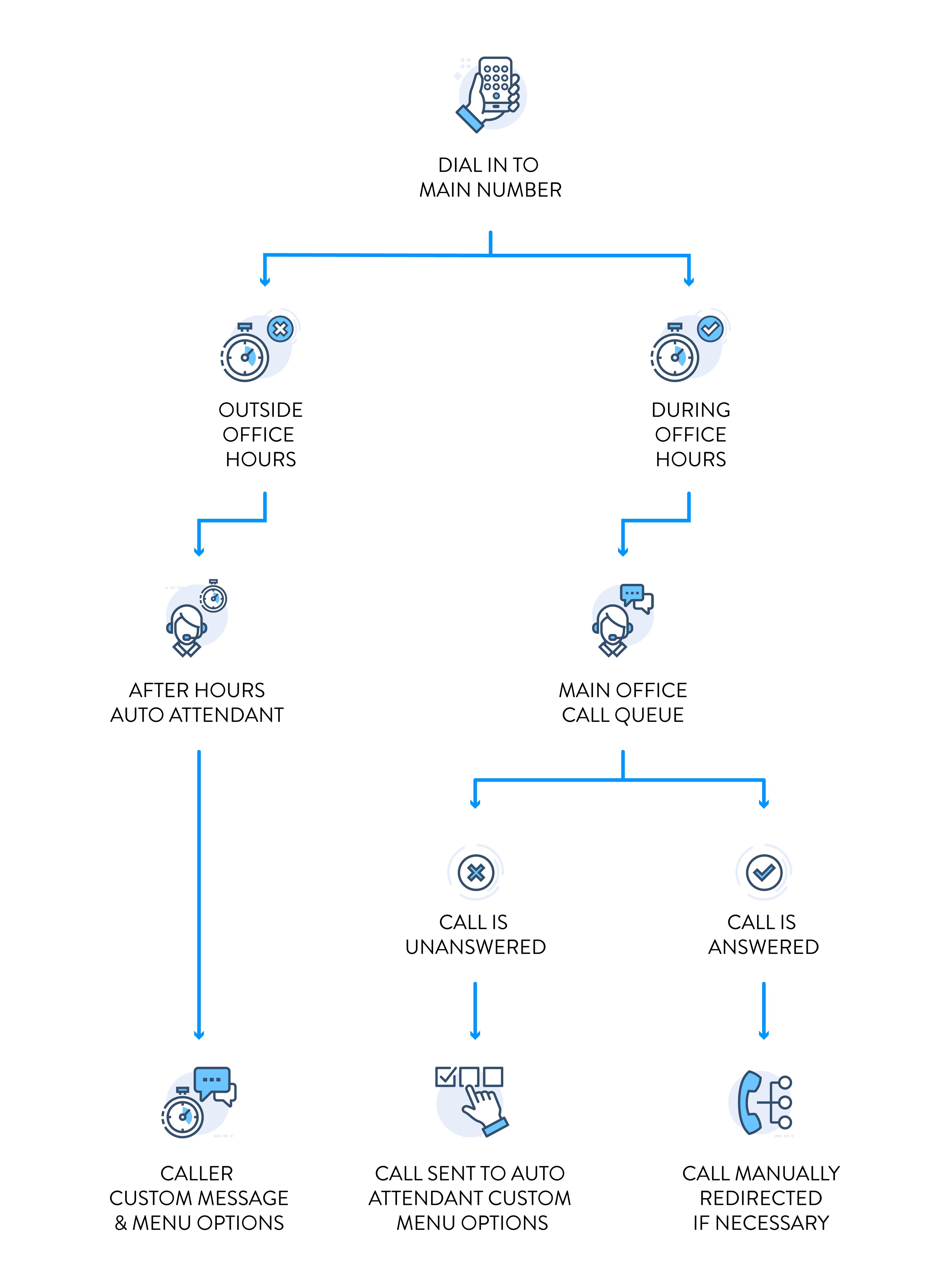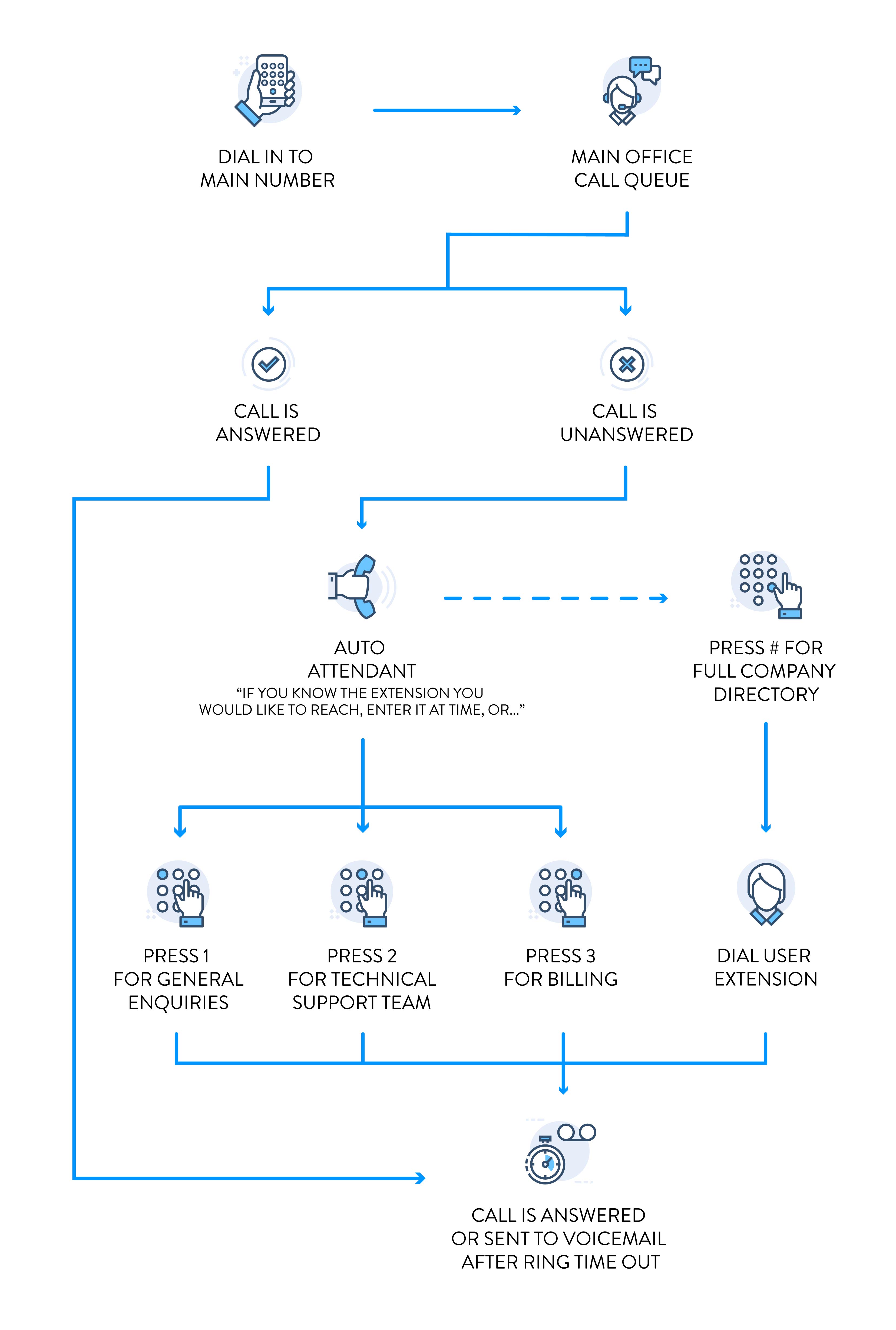Time Frames: the Backbone of Individual Call Flows
Time frames allow you to set a window (of time) where your phone service will react according to the answering rules you have assigned to that time period.
For example, if you take lunch from 12:30 to 1:00 pm every day, you can send all your calls straight to voicemail for that half an hour time frame. Or, you can pre-set your phone system to be out of the office for a week and have it automatically reset to your normal call flow when you get back! Learn more with an Out Of Office checklist for a full set of instructions or how to create a new time frame.
After-Hours Call Flow
How your business handles missed calls, especially after hours, is critical. After hours or closed hours are time periods when your office is not actively accepting calls.
For example, if your office hours are 9:00 am to 5:00 pm, any calls received outside of these hours (before 9:00 am or after 5:00 pm) will automatically route to your After-Hours Auto Attendant, providing callers with options such as leaving a voicemail or forwarding the call.

Answering Rules
The Sonar portal offers the following answering rules:
- Always: Sends calls directly to the extension or phone number you’ve entered.
- When busy: Forward calls when already on the phone or the system is set to unavailable.
- When unanswered: Forwards unanswered calls.
- Net2phone Canada Sure Answer: Forward calls if phones go offline due to a power or internet outage.
- Simultaneous Ring: you can configure multiple devices to ring at the same time to ensure you never miss a call.
You must also specify where you want your calls forwarded. Several options are available to meet your needs, such as:
- Forward calls to an extension,
- Forward calls to a phone number,
- Forward calls to voicemail,
- Forward calls to an auto-attendant (with menu choices), and,
- Forward to a queue - queue extension.
Learn more about how answering rules allow individuals to configure specific call flows so they can optimize their workflow!
Classic Call Flow Example
A typical call flow for a small-to-medium office that employs a secretary (or main office administrator) who aims to answer incoming calls during the day. The flow features a main receptionist call queue (ring group). If an incoming call is missed, a main-office auto attendant is triggered with options such as:
- call forwarding,
- company directory, and,
- customer relations queues.
The caller will always reach an endpoint.

General Best Practices
Regardless of your call flow needs, there are a few rules of thumb to follow.
- All call flows must reach an endpoint. You cannot have an infinite queue loop configured.
- Auto attendant messages should be informative with next-step instructions for callers. Learn more about Auto Attendant Best Practices.
- After-hours auto attendants should provide call forwarding options: to call queues, voicemail boxes, or external numbers, or no-answer will connect to your defaulted voicemail.
- In the Sonar portal, time frames are always connected to your call flow; both auto attendants and call forwarding options rely on pre-configured time frames.
